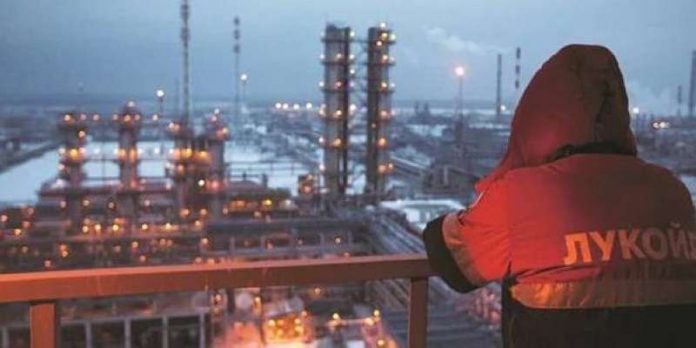The European Union is putting the final touches on a decision to gradually halt purchases of Russian oil and its derivatives within the framework of the sanctions imposed on Moscow against the backdrop of its invasion of Ukraine. A local Arabic daily quoting AFP said the EU is expected to announce this week a timetable for new measures.
“There is a political will to stop buying oil from Russia, and next week we will have measures and a decision regarding a gradual halt,” a European official involved in the talks said. The European Commission is supposed to present a proposal for a ban “with a transitional period that extends until the end of the year,” according to a European diplomat.
But the European official stressed that the decision “is not easy to implement” because of two difficulties. Two landlocked European countries, Hungary and Slovakia, depend on Russian oil pipelines, and are not connected to any European oil pipelines. Therefore, infrastructure must be established or alternatives must be found.
On the other hand, care must be taken that European decisions do not lead to a rise in oil prices, which would be counterproductive. In April, US Federal Reserve Chair Janet Yellen said, “We have to be careful about a full European ban on oil imports.”
The European official explained that setting a price ceiling along the lines recommended by the United States is a “smart measure” because it prevents speculation and maintains the profitability of oil, but “it should be applied on a larger scale than the Europeans and Americans.”
The announcement of the European effort aims to diversify the sources of supply and set a timetable for stopping the purchase of oil and its derivatives from Russia, with a duration ranging between six and eight months, in order to avoid a boom in the markets.
Over the weekend, the European Commission held talks with the most affected member states, the United States and the International Energy Agency to finalize the proposal to be presented to the bloc’s member states.
During a visit to Chile, EU foreign policy chief Josep Borrell said on Sunday that “the new package of sanctions that is being prepared is indispensable.”
“We must take advantage of our economic and financial leverage to pay Russia the price for its actions,” he said, adding that the bombing of Odessa airport means that Moscow “has the intention to deprive Ukraine of its seaport.”
Imposing sanctions on Russian oil requires the unanimity of member states. The European official said, “Hungary has so far been on time for sanctions, and it should be avoided giving it an excuse to prevent (sanctions) related to oil.”
The first talks are taking place, on Monday, during a meeting of energy ministers in the European Union to be held in Brussels, but it is not expected that any decision will come from it, because the Commission has not yet presented its proposals regarding sanctions.
The sixth package of European measures prepared by Commission President Ursula von der Leyen aims to impose sanctions on the entire Russian oil system.
In the short term, one measure will aim to increase the cost of sea freight for Russian oil.
Several European diplomatic sources indicated that Sberbank, the largest in Russia and the largest market share with 37 percent, will be excluded from the “SWIFT” system for international money transfers. The European Union is seeking to cut off funding for it due to the Kremlin’s war in Ukraine.
Russia exports two-thirds of its oil to the European Union. In 2021, the European Union imported from Russia 30% of its purchases of crude oil and 15% of its purchases of oil derivatives. In mid-April, Borrell said that “the bill for importing Russian oil is four times higher than the bill for importing gas, $80 billion compared to $20 billion.”
Germany, Italy, the Netherlands and France are the largest importers of Russian fossil fuels, including gas, crude oil, oil derivatives and coal. On August 1, the decision to ban the import of Russian coal, which was taken on April 7, will enter into force.
Berlin announced that it had reduced its dependence on Russian oil and had reduced its imports from it from 35 to 12 percent in recent weeks, while supporting the principle of a gradual ban, according to what the German Minister of Economy and Climate Robert Habeck announced.

















